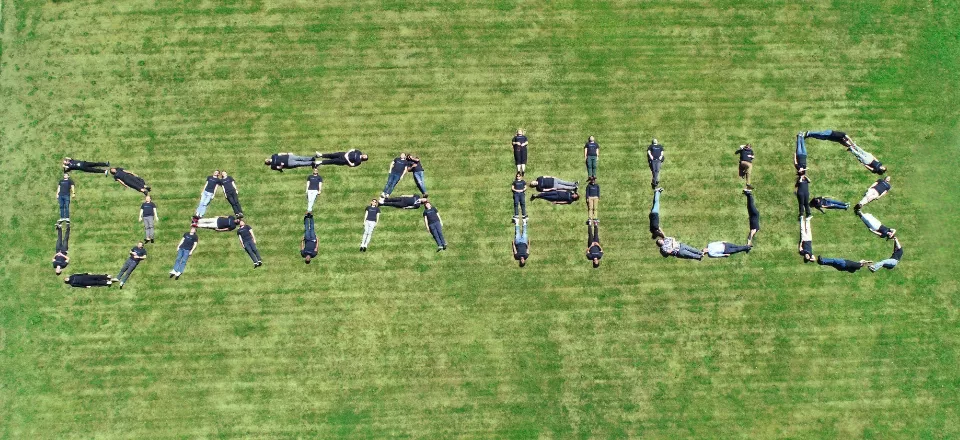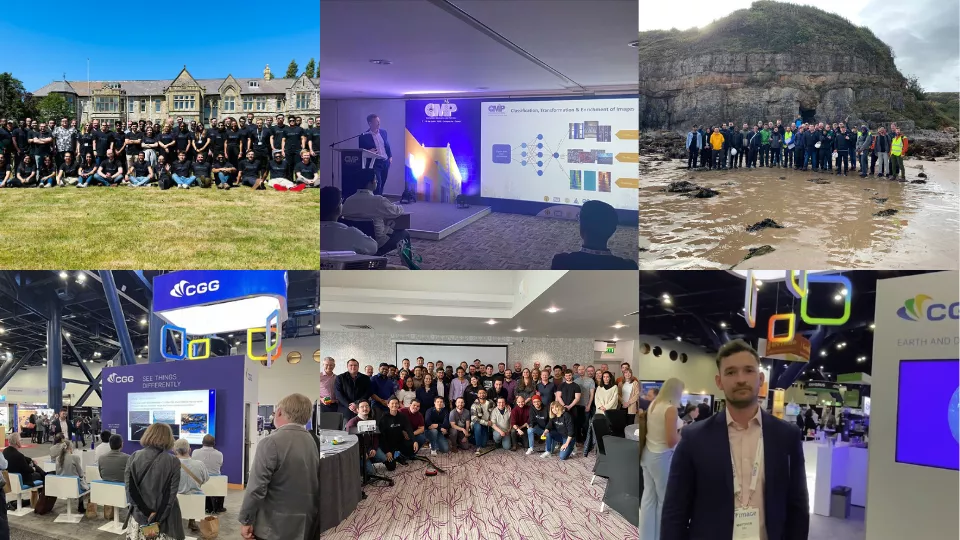
Data Hub team lead Matt Fry discusses the value of augmenting geoscience workflows with data science, powered by technology and driven by subject-matter experts
Data science is playing an increasingly vital role in projects of all sizes in nearly every industry. For Matt Fry, this evolution means there’s never been a more exciting time to be in the field. We caught up with Matt to get his take on the growing prevalence of data science in geoscience workflows, why it’s critical for long-term business success, and what’s on the horizon for data transformation.
What was your professional history leading up to your current role at Data Hub?
I earned a bachelor’s degree in chemistry and a master’s in petroleum geochemistry from Newcastle University in the UK. I then worked as an environmental consultant for two years in Edinburgh before joining Viridien as a geochemist in 2018 and making the move down to North Wales. Since then, I have progressed through as a project geoscientist to today, in my team lead role for Data Hub. During my time, Data Hub has grown rapidly, and it’s been an exciting time to be involved.

What does your day-to-day look like?
My day-to-day work is highly varied, sometimes challenging, yet always rewarding and interesting! One day, I might serve as one of our subject-matter experts, using my background to do detailed geochemistry work, defining quality control (QC) rules and building analytics on top of the datasets on which we are working.
Alternatively, when I have my team lead hat on, I’ll be managing people and projects in this very multidisciplinary domain in which we work. The next, I might work directly with clients one-on-one or at conferences to help solve their data challenges. Life at a service company is rewarding because we’re able to move quickly to meet client needs.
How was your transition from environmental consultancy to data transformation?
Transition into the data domain has felt organic. It has largely mirrored that of Data Hub’s. As we started taking on projects of greater complexity, we found that we needed to not only upskill but completely reimagine traditional geoscience workflows by augmenting them with data science. Since then, it’s been fascinating to see how quickly things are developing across the industry and what can be achieved by harnessing this.
Working within geoscience is inherently multidisciplinary due to the range of specialties required to understand the complexity of the subsurface. I feel that including data science in this list of competencies has been a natural progression for our team — and the broader industry. This gives us an exciting environment to work in as a team, with highly talented graduates in geoscience and data who are motivated to push the boundaries forward in our multidisciplinary domain.

Why do you think data transformation has increased in attention?
End-users need to be able to rapidly access and integrate large datasets from many sources at the same time. Typically, they are highly variable in format, vintage, or completely siloed. They also need to fundamentally understand the provenance and reliability of that data to deliver meaningful decisions that generate business value.
Traditional geoscience approaches simply can’t keep pace with modern data volumes, turnaround times, necessary processes and governance required for making informed decisions. That’s where the industry is finding success in leveraging modern methods of data management and data science like artificial intelligence (AI). These digital solutions free geoscientists to focus on what they’re best at, like making complicated interpretations that translate into business-critical decisions, instead of wasting time finding and wrangling data.
What do you think is on the horizon for data transformation?
For years, we’ve seen companies across industries using AI, but its application is almost always restricted to small-scale proof-of-concept-type studies that limit the number of documents, wells or work within a specific geography.
Initiatives such as the Open Subsurface Data Universe (OSDU™) are really promising because they give the industry a platform for rapid data exchange between companies, scaling these proof-of-concept and pilot approaches into evergreen solutions. We’ve seen high levels of collaboration between operators and service providers in recent years, which is key to driving these initiatives forward, as well as the growth specialist software that enables reliable decision-making at scale.